- Home
- Lauren Tarshis
I Survived the Battle of Gettysburg, 1863 Page 5
I Survived the Battle of Gettysburg, 1863 Read online
Page 5
And he is indeed a very smart, honest, and courageous man.
He speaks for only two minutes. His message is clear: that the war is about nothing less than the very survival of America. And that to honor the men buried in this cemetery, we must not give up fighting for the cause they gave their lives for.
The speech is so short, and the words are so simple, that most people don’t even clap. Few think it’s a good speech.
And it wasn’t a good speech. It was an incredible speech. Today, the Gettysburg Address, as it’s known, is considered one of the greatest speeches in American history. Read it now. You’ll probably want your mom or dad or teacher to read it with you the first time, since some of the language is old-fashioned. But after you read it a few times, you’ll understand it very well, and you’ll understand what the terrible Civil War meant to our country.
The Gettysburg Address
Four score and seven years ago our fathers brought forth on this continent a new nation, conceived in liberty, and dedicated to the proposition that all men are created equal.
Now we are engaged in a great civil war, testing whether that nation or any nation so conceived and so dedicated can long endure. We are met on a great battlefield of that war. We have come to dedicate a portion of that field as a final resting place for those who here gave their lives that that nation might live. It is altogether fitting and proper that we should do this.
But, in a larger sense, we can not dedicate, we can not consecrate, we can not hallow this ground. The brave men, living and dead who struggled here, have consecrated it far above our poor power to add or detract. The world will little note, nor long remember what we say here, but it can never forget what they did here. It is for us the living rather to be dedicated here to the unfinished work which they who fought here have thus far so nobly advanced. It is rather for us to be here dedicated to the great task remaining before us — that from these honored dead we take increased devotion to that cause for which they gave the last full measure of devotion — that we here highly resolve that these dead shall not have died in vain, that this nation under God shall have a new birth of freedom, and that government of the people, by the people, for the people shall not perish from the earth.
There are tens of thousands of books about the Civil War and slavery. Here are a few that I discovered in my research, and that you might like to read.
A History of US: War, Terrible War 1855–1865, Book Six, by Joy Hakim, Oxford University Press, 2007
There’s no better writer of history than Joy Hakim. This is part of her ten-volume American history series, and I swear you won’t even realize you’re learning. Everything you need to understand about the Civil War is here as well as an amazing story about General Lee’s sword (you need to read the book to find out).
The Long Road to Gettysburg, by Jim Murphy, Sandpiper, 2000
The author uses the real words of soldiers to tell the story of Gettysburg. There are real pictures, too. You’ll get a very clear sense of what it was like for the soldiers fighting.
The Boys’ War: Confederate and Union Soldiers Talk About the Civil War, by Jim Murphy, Sandpiper, reissue 1993
Many boys and young men fought in the Civil War. Like The Long Road to Gettysburg, this book uses the story of real soldiers to show what life was really like for them.
Lincoln: A Photobiography, by Russell Freedman, Sandpiper, 1989
A fascinating look at one of our greatest presidents.
Elijah of Buxton, by Christopher Paul Curtis, Scholastic Inc., 2007
This is a novel, but it will give you a clear idea of what slavery was like in the years just before the Civil War.
Moses: When Harriet Tubman Led Her People to Freedom, by Carole Boston Weatherford, illustrated by Kadir Nelson, Jump at the Sun/Hyperion Books, 2006
This is a picture book, but it’s my favorite about Harriet Tubman, who escaped from slavery and then went back to the South to lead others to freedom.
The only thing Lucas loves more than football is his dad’s friend Benny, a firefighter and former football star. He taught Lucas the game and helps him practice. So when Lucas’s parents decide football is too dangerous and he needs to quit, Lucas has to talk to his biggest fan.
On a whim, Lucas takes the train to the city instead of the bus to school. It’s a bright, beautiful day in New York. But just as Lucas arrives at the firehouse, everything changes … and nothing will ever be the same again.
Lauren Tarshis is the editor of Scholastic’s Storyworks magazine and group editorial director for language arts for Scholastic classroom magazines, in addition to being the author of the I Survived series and the critically acclaimed novels Emma-Jean Lazarus Fell Out of a Tree and Emma-Jean Lazarus Fell in Love. She lives in Westport, Connecticut, and can be found online at www.laurentarshis.com.
Text copyright © 2013 by Lauren Tarshis
Illustrations copyright © 2013 by Scholastic Inc.
All rights reserved. Published by Scholastic Inc.
SCHOLASTIC and associated logos are trademarks and/or registered trademarks of Scholastic Inc.
First printing, January 2013
Cover art by Steve Stone
Cover design by Tim Hall
e-ISBN 978-0-545-53225-9
All rights reserved under International and Pan-American Copyright Conventions. No part of this publication may be reproduced, transmitted, downloaded, decompiled, reverse engineered, or stored in or introduced into any information storage and retrieval system, in any form or by any means, whether electronic or mechanical, now known or hereafter invented, without the express written permission of the publisher. For information regarding permission, write to Scholastic Inc., Attention: Permissions Department, 557 Broadway, New York, NY 10012.

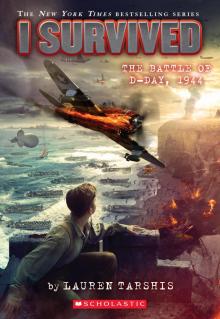 I Survived the Battle of D-Day, 1944 (I Survived #18)
I Survived the Battle of D-Day, 1944 (I Survived #18)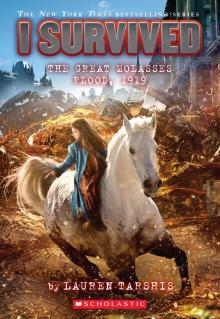 I Survived the Great Molasses Flood, 1919
I Survived the Great Molasses Flood, 1919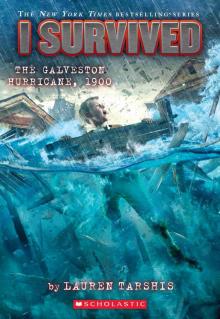 I Survived the Galveston Hurricane, 1900
I Survived the Galveston Hurricane, 1900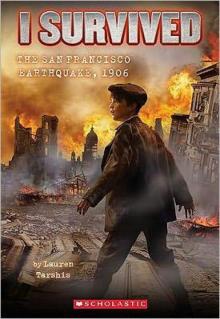 I Survived the San Francisco Earthquake, 1906
I Survived the San Francisco Earthquake, 1906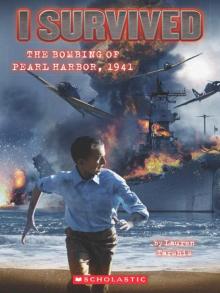 I Survived #4: I Survived the Bombing of Pearl Harbor, 1941
I Survived #4: I Survived the Bombing of Pearl Harbor, 1941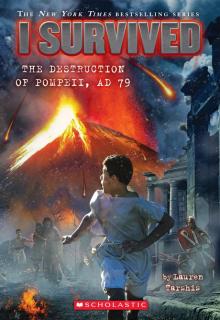 I Survived the Destruction of Pompeii, AD 79
I Survived the Destruction of Pompeii, AD 79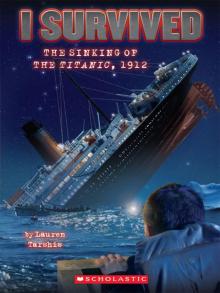 I Survived #1: I Survived the Sinking of the Titanic, 1912
I Survived #1: I Survived the Sinking of the Titanic, 1912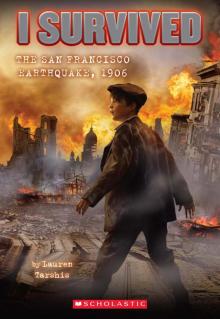 I Survived #5: I Survived the San Francisco Earthquake, 1906
I Survived #5: I Survived the San Francisco Earthquake, 1906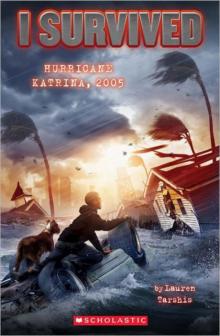 I Survived Hurricane Katrina, 2005
I Survived Hurricane Katrina, 2005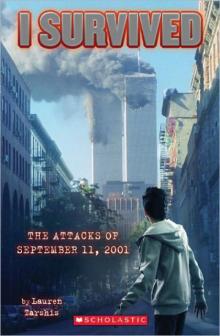 I Survived the Attacks of September 11th, 2001
I Survived the Attacks of September 11th, 2001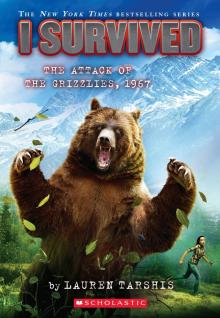 I Survived the Attack of the Grizzlies, 1967
I Survived the Attack of the Grizzlies, 1967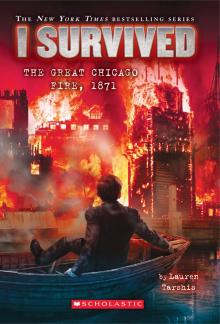 I Survived the Great Chicago Fire, 1871
I Survived the Great Chicago Fire, 1871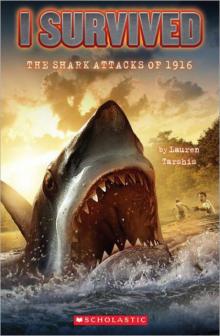 I Survived the Shark Attacks of 1916
I Survived the Shark Attacks of 1916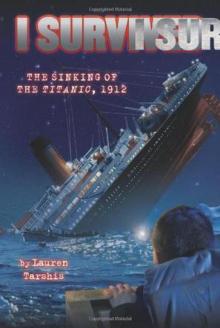 I Survived the Sinking of the Titanic, 1912
I Survived the Sinking of the Titanic, 1912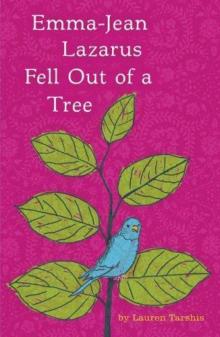 Emma-Jean Lazarus Fell Out of a Tree
Emma-Jean Lazarus Fell Out of a Tree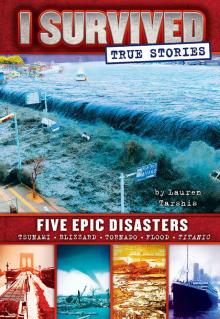 I Survived True Stories: Five Epic Disasters
I Survived True Stories: Five Epic Disasters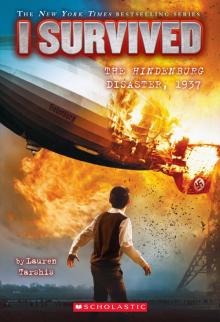 I Survived the Hindenburg Disaster, 1937
I Survived the Hindenburg Disaster, 1937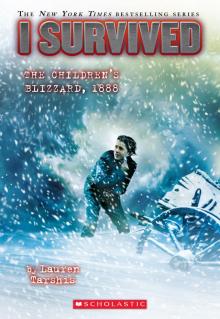 I Survived the Children's Blizzard, 1888
I Survived the Children's Blizzard, 1888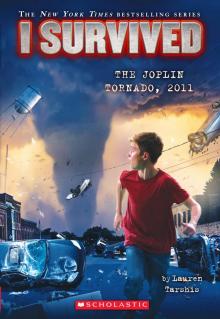 I Survived the Joplin Tornado, 2011
I Survived the Joplin Tornado, 2011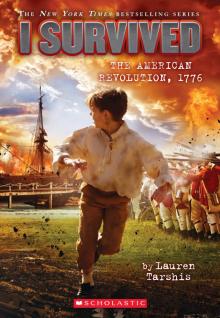 I Survived the American Revolution, 1776
I Survived the American Revolution, 1776 Emma Jean Lazarus Fell in Love
Emma Jean Lazarus Fell in Love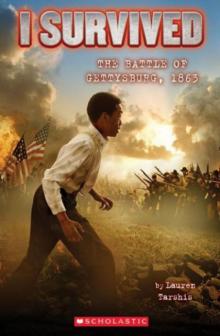 I Survived the Battle of Gettysburg, 1863
I Survived the Battle of Gettysburg, 1863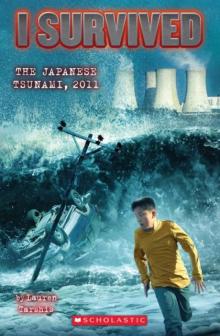 I Survived the Japanese Tsunami, 2011
I Survived the Japanese Tsunami, 2011